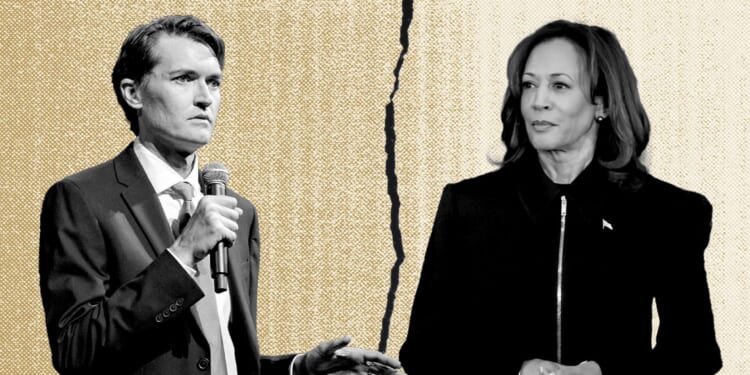I confess I haven’t read 107 Days, Kamala Harris’ new memoir about her short-lived presidential campaign, cover to cover. But I did read at least one sentence, and it was a doozy.
“The Justice Department is going after Trump’s enemies list,” the former vice president writes, “while Trump supporters have been pardoned and released: January 6 rioters who attacked police, the fentanyl dealer Ross Ulbricht, numerous tax cheats.”
Ah, Ross Ulbricht, the fentanyl dealer who was not convicted of actually dealing fentanyl—or any drug—himself.
Ulbricht was sentenced to life in prison for his role in operating the Silk Road, an online marketplace where people could buy and sell illicit drugs. “By punishing Ulbricht as if he personally distributed narcotics, the government set a dangerous precedent for internet platforms and personal liability in the digital age,” wrote Editor in Chief Katherine Mangu-Ward in the April issue of Reason. “Pressure to hold platform operators liable for everything from misinformation to sex work has grown in the past decade as Ulbricht and his supporters—especially those in the libertarian and cryptocurrency communities—fought for his freedom.”
Ulbricht ultimately obtained that freedom, as Harris notes, from President Donald Trump, who granted Ulbricht a pardon after he had served 11 years in prison. One need not even approve of Ulbricht’s conduct to understand that clemency here was not the scandal Harris portrays.
His sentence was, for one, grossly disproportionate to his offenses: a double life sentence without the possibility of parole. The only way he would have otherwise been released was in a body bag. Serving more than a decade in prison is no small thing.
But his motivations should also matter, which Harris obscures by reducing Ulbricht to “the fentanyl dealer.”
“The Silk Road began as Ulbricht’s idealistic attempt to make the black market just a little safer by creating a place where people could vet buyers,” notes Reason‘s Zach Weissmueller, “avoid risky in-person transactions, find untainted drugs, and share safety information.” Indeed, Ulbricht, who has expressed remorse multiple times for any harm he caused, has said he “was trying to do something good.”
Harris isn’t wrong that Trump has issued pardons to some undeserving recipients. She could have chosen to highlight Scott Jenkins, for instance, the Virginia sheriff who was convicted of accepting cash bribes from businessmen in exchange for appointing them as auxiliary deputy sheriffs, a sworn law enforcement position, so they could take advantage of the special privileges associated with that role. Jenkins was sentenced to ten years in prison but did not serve a day of that. Why? “No MAGA left behind,” said Pardon Attorney Ed Martin on X.
Even still, Harris is entitled to her opinion on whether or not Ulbricht succeeded in his goal to “do something good.” Her throwaway line about him in her new book, however, is a reminder that no matter how many times she has tried to position herself as someone who supports redemption and sensible criminal justice reform—and to run away from her tough-on-crime past—she is still ever the prosecutor.

















